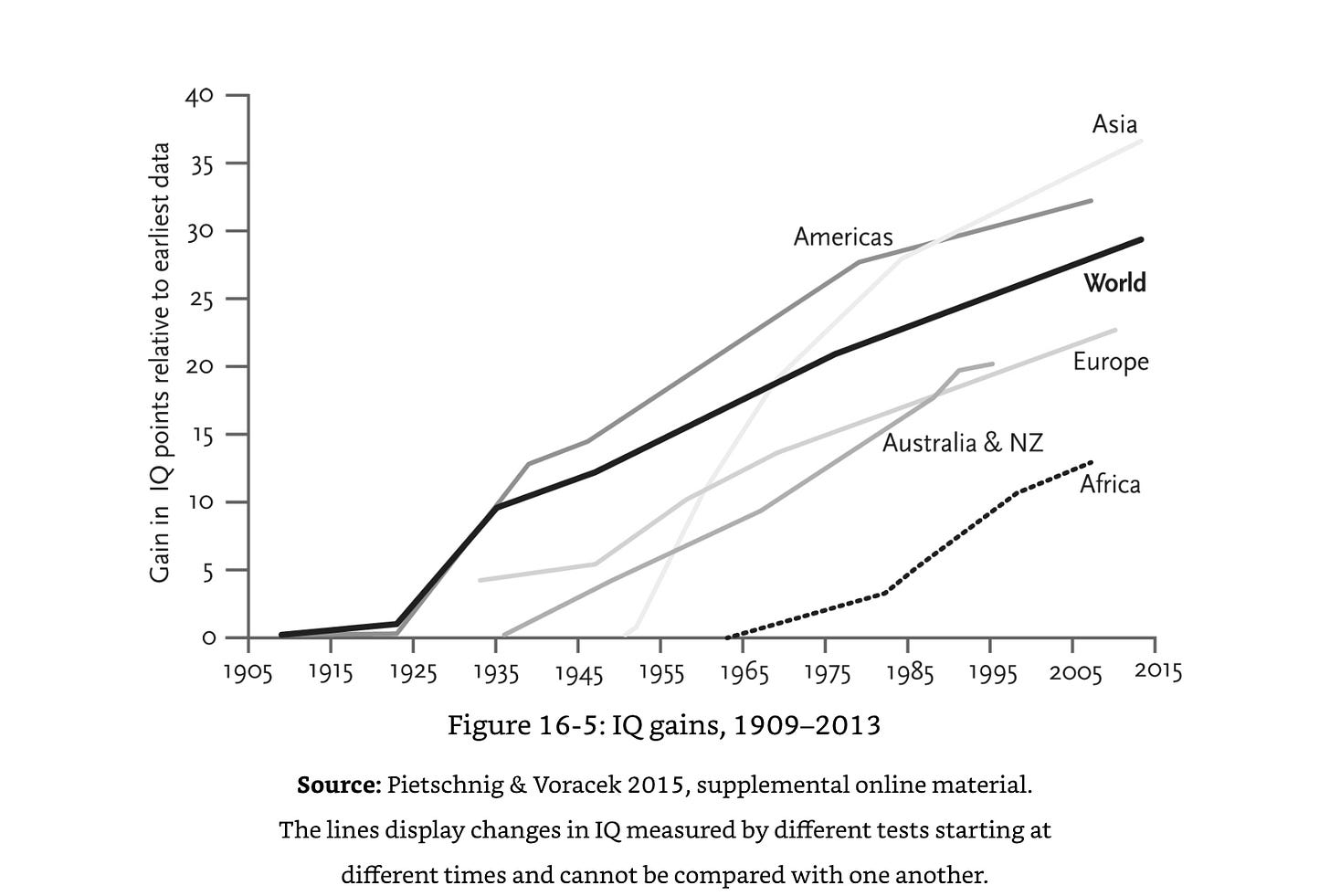Average IQ around the world…
…has increased by around 25 points in the last 100 years
Today’s graph is another surprising one! Known as the Flynn effect after James Flynn suggested it in 1984, it was met with cynicism but has become accepted, confirmed in a meta-analysis of 271 samples from 31 countries with including million people. These IQ gains are real (the tests aren’t getting easier), and in general follow the other socioeconomic trends we’ve been seeing that align with GDP and economic growth.
So what could be the cause of this phenomenon?
It’s not straightforward, but it’s likely the better nutrition and health, particularly in childhood, have an impact, but don’t tell the whole story - although all countries sampled got smarter, in many cases it wasn’t because the poorer were getting richer (and thus healthier and better fed), but the whole curve was moving up, even those who were already well-fed and healthy were increasing in IQ.
Education likely has an effect as well, but surprisingly the biggest gains in intellectual performance have not been found in skills like arithmetic or general knowledge, but in more abstract forms of intelligence - finding commonalities between pairs of objects or solving logical problems. This could bode well for the continuing value of human intelligence in a world of computers, the internet, and AI.
Has this increase had an impact on individual people? Almost certainly. IQ correlates to better life chances, higher salaries, less trouble with the law and a longer and happier life. It may well be a cause of, as well as a result of, many of the other social improvements we have seen.


